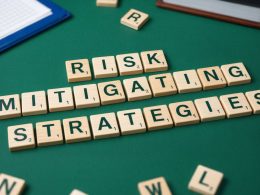by Sarah Hargreaves, Head of Sustainability, Commonwealth Financial Network
Following two years of explosive growth, investments incorporating environmental, social, and governance (ESG) criteria endured a challenging market environment throughout 2022. The combination of elevated inflationary pressures, geopolitical tensions, and an energy crisis following Russia’s invasion of Ukraine precipitated a volatile backdrop for sustainable investments. Furthermore, in the U.S., skepticism around the efficacy of ESG—due to greenwashing and heightened politicization—slowed the pace of progress previously experienced in 2020 and 2021. As investors turn the page on a volatile 2022, what are they key outcomes in the path forward for ESG investments?
From a regulatory perspective, we expect governing bodies will continue clamping down on ESG in 2023, in terms of clearly defining ESG approaches, mandating disclosure requirements, and providing greater transparency from an ESG data and ratings perspective. Throughout the back half of 2021 and entering 2022, concerns around greenwashing—or misleading claims regarding the sustainability of a company or asset manager’s products—prompted regulatory bodies in the U.S. to clamp down on misleading ESG claims through proposals aimed at standardizing ESG-related disclosures, coupled with climate-risk reporting requirements (i.e., for greenhouse gas emissions). In 2023, investors can expect regulatory bodies, such as the SEC, to provide final ruling on climate-related disclosures. We are already starting to see greater regulatory scrutiny surrounding climate-related data in other areas of the word. In the UK, for example, the Task Force on Climate-Related Financial Disclosures’ reporting requirements are already becoming the norm.
We also expect the renewable energy transition to continue accelerating in 2023. Russia’s invasion of Ukraine highlighted the economic and geopolitical risks of the global economy relying on fossil fuels, most notably in Europe, where inflation accelerated energy and food costs resulting in an economic slowdown and causing governments to implement costly energy packages. As a result, countries will look to reemphasize energy affordability and security. Renewables will play an integral part in helping to resolve the challenges of energy costs previously dependent on fossil fuels, while reducing carbon emissions and aligning with new net zero targets. Additionally, over the past decade, the costs of renewable energy generation, such as solar and onshore and offshore winds, are becoming more attractive than natural gas sources, especially in regions like Europe. Ultimately, companies that are well-positioned to align with secular growth trends, such as the transition to a more sustainable global economy by creating products or facilities that store energy, will continue to garner market share, while upending many sectors and industries in the process.
In the U.S., ESG investments faced the perfect storm of politically charged headwinds and relative underperformance in 2022. The politicization of ESG precipitated states to divest from funds and asset managers with dedicated ESG strategies or sustainability commitments. However, the private sector is poised to aid the progression of ESG initiatives, such as the transition to net-zero. From a performance profile perspective, ESG strategies with allocations to growth sectors, such as technology, and strategic underweights to the energy sector lagged their traditional counterparts across many asset classes in 2022.
Despite the backlash, the ESG space experienced a more active shareholder resolution, stewardship, and proxy voting period in 2022. Trends such as the emphasis on stakeholder capitalism, the continual rise of investors’ preference for passive ESG investments, and the generational wealth transfer to younger generations of Americans—who exhibit a greater propensity to invest according to their personal values and or with ESG-related objectives in mind—should continue driving growth and awareness in the space. At the end of the day, ESG investing seeks to provide investors with another arrow in the quiver to assess the financially relevant, non-financial risks of a company or industry. Incorporating ESG data can provide investors with a more well-rounded, complete view of how a company or industry operates, and should remain well-positioned to assess material long-term alpha opportunities.
Certain sections of this commentary contain forward-looking statements that are based on our reasonable expectations, estimates, projections, and assumptions. Forward-looking statements are not guarantees of future performance and involve certain risks and uncertainties, which are difficult to predict.
Investments are subject to risk, including the loss of principal. Environmental, social, and governance (ESG) criteria are a set of non-financial principles and standards used to evaluate potential investments. The incorporation of ESG principles provides a qualitative assessment that can factor heavily into the security selection process. The investment’s socially responsible focus may limit the investment options available to the investor. Past performance is no guarantee of future results.
Commonwealth Financial Network ®, Member FINRA/SIPC
The information contained in this email message is being transmitted to and is intended for the use of only the individual(s) to whom it is addressed. If the reader of this message is not the intended recipient, you are hereby advised that any dissemination, distribution, or copying of this message is strictly prohibited. If you have received this message in error, please immediately delete.














